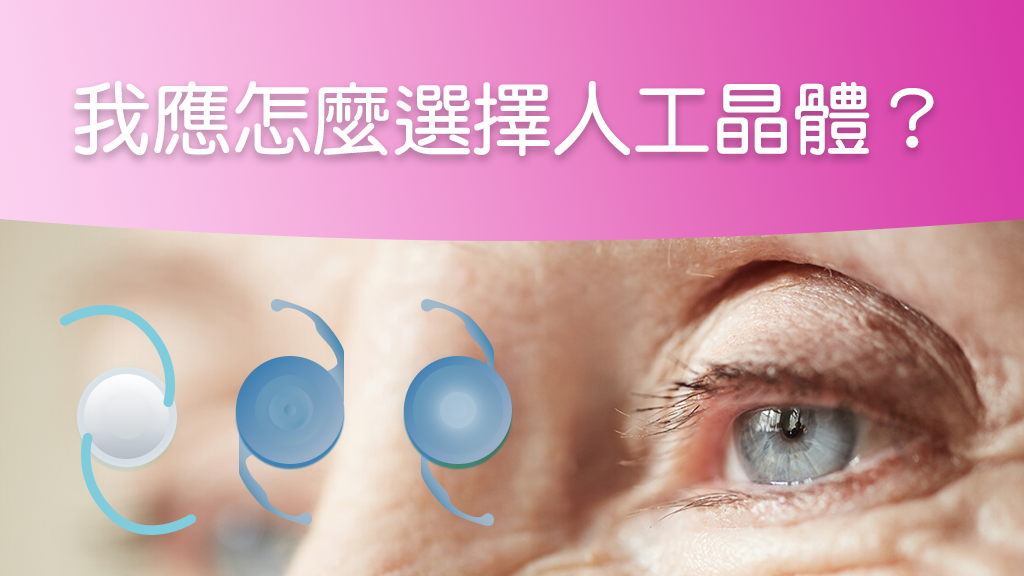Cataract is an eye disease in which the previously transparent lens of the eye becomes cloudy and affects vision. Patients may feel a layer of white fog obscuring them when they look at objects, making it difficult to see things in front of them, which not only greatly affects quality of life, but also increases the risk of falls or other accidents. While modern medicine has provided an effective set of treatment options to deal with cataracts, preventing cataracts can avoid the inconvenience that patients experience with vision loss and the treatment process. Cataract prevention is an important concept that all ophthalmologists are trying to promote, rather than cure.
How to prevent cataracts
Lens opacity is usually caused by aging eyes, and for senile cataracts, we can prevent them by changing some lifestyle habits.
Avoid ultraviolet and blue light
The proteins in the lens absorb blue light from ultraviolet and visible light, so prolonged exposure to sunlight or prolonged staring at electronic devices can overwork the lens and become cloudy, increasing the risk of cataracts. Therefore, you should wear sunglasses in places where the sun is particularly strong, and at the same time pay attention to let your eyes rest properly and avoid playing with your mobile phone all the time.
Eat a healthy diet
EATING FOODS RICH IN ANTIOXIDANTS, SUCH AS FRUITS, VEGETABLES, AND NUTS, CAN HELP MAINTAIN EYE HEALTH. ADEQUATE INTAKE OF VITAMINS A, C, E, AND OTHER NUTRIENTS CAN ALSO HELP PREVENT CATARACTS. IF YOU ARE AT HIGH RISK OF CATARACTS, IT IS RECOMMENDED THAT YOU GET A DIET PLAN FROM A DIETITIAN OR OPHTHALMOLOGIST TO REDUCE THE INCIDENCE OF CATARACTS.
Control blood sugar levels
Diabetes is an important factor in the development of cataracts. Therefore, keeping blood sugar levels stable is one of the keys to cataract prevention. Do not consume too much sweets such as desserts and milk tea, and plant starches such as flour and rice, which are converted into glucose in the body, should not be consumed excessively. Diabetics are advised to always check their blood sugar regularly and follow their doctor's advice to maintain good blood sugar levels.
Quit smoking
The adverse effects of smoking on eye health have been extensively studied and proven. Smoking causes oxidation of lens cells, which in turn promotes the formation of cataracts. Experiments have shown that smoking can lead to the slow accumulation of heavy metal impurities in the lenses of the eyes, which in turn increases the risk of cataracts. Compared with non-smokers, smokers are 2~3 times more likely to suffer from cataracts. Therefore, quitting smoking is not only good for your health, but also one of the important measures to reduce the risk of cataracts.
Regular eye exams
Regular eye check-ups can help detect any eye problems early, and it is recommended to have 1~2 eye check-ups per year. Early detection of cataracts can make it easier to treat or surge, reducing its impact on vision.
Cataract prevention and eye supplemental food
In addition to the methods mentioned above, we can also slow down the aging of our eyes through some eye-tonifying foods or cataract diet regimens recommended by professional doctors. If you have vision problems or other health problems that require strict dietary control, you should consult a medical professional about eye care and other related issues.
Omega-3 fatty acids
Omega-3 fatty acids are a nutrient that is very important for eye health. They are found in fish, nuts, and vegetable oils. Studies have shown that getting enough omega-3 fatty acids can reduce the risk of cataracts.
VITAMIN E
VITAMIN E IS A POWERFUL ANTIOXIDANT THAT CAN HELP PROTECT THE EYES FROM FREE RADICAL DAMAGE. NUTS, SEEDS, VEGETABLES AND VEGETABLE OILS ARE ALL EYE-TONIC FOODS RICH IN VITAMIN E.
VITAMIN C
VITAMIN C IS AN ANTIOXIDANT RECOMMENDED BY THE AMERICAN OPTOMETRY ASSOCIATION TO HELP PROTECT THE EYES FROM OXIDATIVE DAMAGE AND MAINTAIN THE HEALTH OF THE BLOOD VESSELS IN THE EYES. EYE-TONIC FOODS RICH IN VITAMIN C INCLUDE CITRUS FRUITS, STRAWBERRIES, KIWIFRUIT, CAULIFLOWER, ETC.
Lutein and zeaxanthin
Lutein and zeaxanthin are important nutrients in the eye and can help protect the eyes from UV rays and free radical damage. Intake of eye-tonic foods rich in lutein and zeaxanthin, such as leafy vegetables and corn, can help prevent the occurrence of cataracts.
Keeping an eye eye healthy can prevent not only cataracts, but also other eye diseases, ensuring that you have healthy eyes as you age. If you are unfortunate enough to find cataract symptoms, please make an appointment as soon as possible for a detailed examination. Early detection and timely treatment of cataracts can greatly reduce the difficulty of treatment and maximize vision protection.




